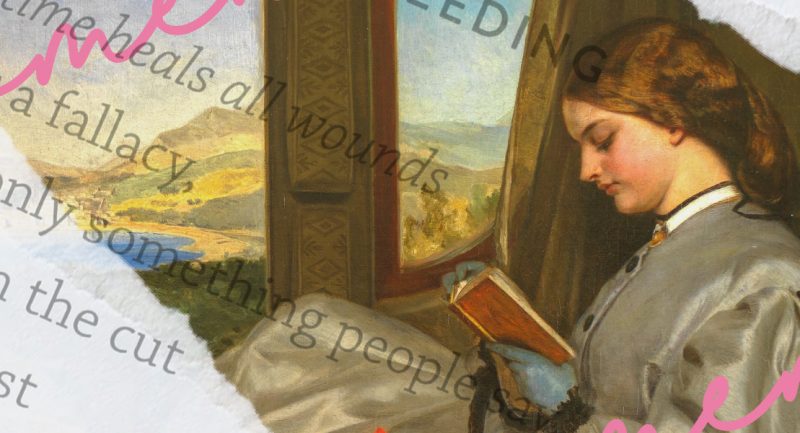
The Roman god Janus, his two faces looking back into the past and the future, embodied endings and beginnings. This makes him the perfect namesake for the first month of the year.
Halfway through January, we want to know: are you excited about 2022, or are you already feeling tired?
Our January TBR pile is all about moving beyond the spark of New Year Resolutions. From heartwarming memoirs to tongue-in-cheek satire to history from a never-before-seen perspective, each story has the essence of a journey, complete with its ups and downs. We are sure they will inspire you into movement, accept the unexpected, and help you map out your 2022.
*

Bachelor Dad
Tusshar Kapoor
Written in a frank, fun, no-holds-barred and incisive first-person narrative, Tusshar reveals interesting childhood anecdotes, the process of raising a child as a single man in India, how the search for the perfect soulmate doesn’t stop after having a child and finally how, his son, Laksshya, changed his life forever.
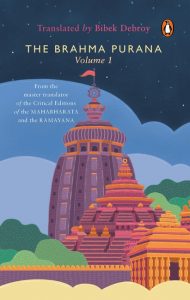
The Brahma Purana Vol. 1
translated by Bibek Debroy
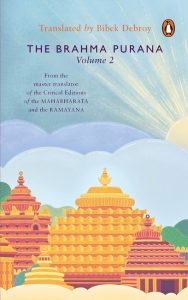
The Brahma Purana Vol. 2
translated by Bibek Debroy
A double-volume translation, this is a fresh new rendition of one of the oldest Puranas. Reading almost like a travel guide, it celebrates temples and sites related to Vishnu, Shiva and Devi as it focuses on places like modern-day Odisha and Rajasthan. Brimming with insight and told with clarity, this luminous text is a celebration of a complex mythological universe populated with gods and mortals, providing readers with an opportunity to truly understand Indian philosophy.
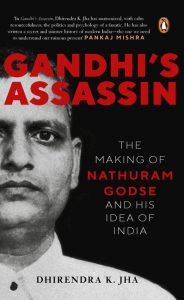
Gandhi’s Assassin
Dhirendra K. Jha
Dhirendra K. Jha’s spectacular study lays bare Godse’s relationship with the organizations that influenced his worldview and gave him a sense of purpose. The book draws out the gradual hardening of Godse’s resolve and the fateful decisions and intrigue that eventually led to, in the chaotic aftermath of India’s independence in 1947, Mahatma Gandhi’s assassination.
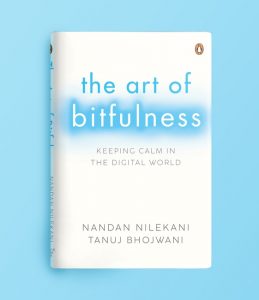
The Art of Bitfulness
Nandan Nilekani, Tanuj Bhojwani
The internet cannot be avoided, but our relationship with it can change.
The Art of Bitfulness helps create healthy boundaries between you and the floodgates of the internet. It offers new strategies to reclaim your time, privacy and attention. This book is all about how to live with tech, not how to live without it.
The goal is not to spend less time on your devices; it is to spend your time on your devices better.
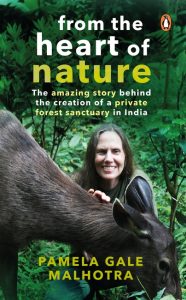
From the Heart of Nature
Pamela Gale-Malhotra
In Kodagu, Karnataka, years of illegal logging and poaching had ravaged the land and decimated the wildlife. Today, with the forests and the ecosystem restored, and the wildlife protected, the SAI sanctuary is a treasure trove of a rich variety of indigenous trees and plants, and a refuge for numerous rare and threatened species of animals, some found nowhere else on the planet. In this deeply fascinating and inspiring personal narrative, Pamela recounts how she connected and communicated with animals and trees at both physical and spiritual levels, and how the only way to save humanity is through understanding and preserving Nature.
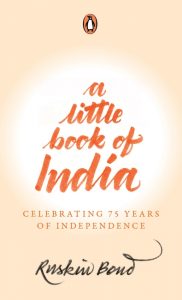
A Little Book of India
Ruskin Bond
Drawing on his own memories and impressions of this unique land, Bond talks fondly about the diverse elements that make up this beautiful land that has been his home for 84 years. From India’s rivers and forests to literature and culture, sights, sounds and colours, A Little Book of India is an amalgamation of the physical and spiritual attributes of our homeland and takes you on a journey filled with nostalgia and devotion.
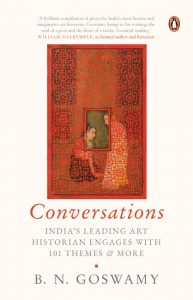
Conversations
B.N. Goswamy
From Ananda Coomaraswamy to the Art of Calligraphy, The Meaning of Silence to Farid-ud-din Attar’s great Sufi parable of the Conference of the Birds, among others, Goswamy invites the general, but generally interested and literate, readers to enter, through these pieces, the field of the arts and savour its pleasures. Definitive, engaging, and comprehensive, Conversations promises to be a truly accessible primer on art in India and South Asia.
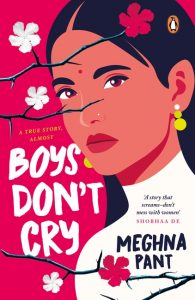
Boys Don’t Cry
Meghna Pant
When Maneka Pataudi is arrested as the prime suspect for the murder of her ex-husband, she reveals a chilling tale of marital abuse and neglect.
But is her confession the truth or a lie? Is she telling the story as a victim or a perpetrator? And, is it better for women to kill for love or be killed for it?
Based on a true story (mostly), Boys Don’t Cry is a gripping, compelling and courageous novel that takes you behind the closed doors of a modern Indian marriage.

The Girl In The Glass Case
Devashish Sardana
The serial killer known as the Clipper has enjoyed nine years of infamy as India’s most notorious butcher—until he is cast aside by the media in favour of the sick new slayer, the Doll Maker. The Clipper turns his fury into blood-soaked revenge to capture the top spot. As corpses start to pile up, Simone Singh, assistant superintendent of police, fights to maneuver the Doll Maker into a clever trap. But the Clipper is hell-bent on striking first and regaining the crown with his most grisly murder yet.
Can Simone take down the two serial killers and stop the psychotic competition before it gets out of hand?
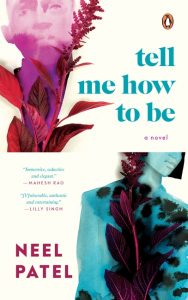
Tell Me How To Be
Neel Patel
As the one-year anniversary of her husband’s death approaches, Renu Amin is binge-watching soap operas and simmering with old resentments. She can’t stop wondering if, thirty-five years ago, she chose the wrong life. In Los Angeles, her son, Akash, has everything he ever wanted, but as he tries to kickstart his songwriting career and commit to his boyfriend, he is haunted by the painful memories he fled a decade ago. When his mother tells him she is selling the family home, Akash returns to Illinois, hoping to finally say goodbye and move on.
Together, Renu and Akash pack up the house, retreating further into the secrets that stand between them. And when their pasts catch up to them, mother and son must decide between the lives they left behind and the ones they’ve since created. The inaugural pick for Lilly Singh’s book club, Tell Me How to Be is the love story of a mother and son each trying to figure out how to be in the world.
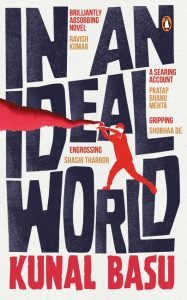
In An Ideal World
Kunal Basu
Altaf Hussein, a young Muslim student, has been abducted from his college hostel. The divide between Liberals and Nationalists invades the Sengupta household in Kolkata when Joy, a bank manager, and Rohini, his schoolteacher wife learn the shocking news that their only son Bobby has become a leader of the Nationalist students and is implicated in Altaf’s disappearance.
Out to solve the mystery of Altaf, Joy and Rohini discover conspiracy and hate, forbidden love and exceptional courage, come face to face with a world caught between the real and the ideal. But will they succeed in absolving their son of the heinous crime? Will Altaf be found after all? Or will they, and this fractured nation, pay the ultimate price for harbouring a fractured heart?
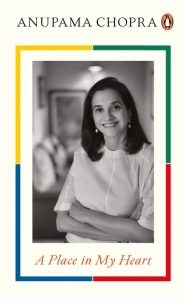
A Place in My Heart
Anupama Chopra
National Award-winning author, journalist and film critic Anupama Chopra writes about fifty films, artistes and events that have left an indelible impression on her and shaped her twenty-five-year-long career. A smorgasbord of cinematic delights to ‘spark joy’ A Place in My Heart is a testament to Chopra’s enduring love for all things cinema.
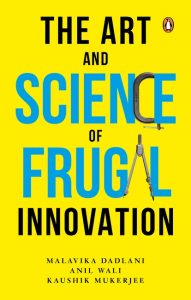
The Art and Science of Frugal Innovation
undefined
The Art and Science of Frugal Innovation comes at a time when the world is grappling with unprecedented issues, including the Covid-19 pandemic that has left all humanity in the eye of the storm. In this book, Malavika Dadlani, Anil Wali and Kaushik Mukerjee deftly explore the scientific underpinnings and social gains of frugal innovations. They also explain how these frugal innovations can help the world overcome a variety of obstacles. While differentiating between frugal and low-cost innovations, this straightforward book also picks the common thread between the two and demonstrates how durable solutions to problems can be found through scientific planning and systematic testing.
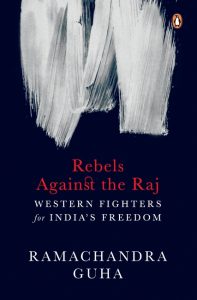
Rebels Against the Raj
Ramachandra Guha
Rebels Against the Raj tells the story of seven people who chose to struggle for a country other than their own: foreigners to India who across the late 19th to late 20th century arrived to join the freedom movement fighting for independence from British colonial rule. Through these entwined lives, wonderfully told by one of the world’s finest historians, we reach deep insights into relations between India and the West, and India’s story as a country searching for its identity and liberty beyond British colonial rule.
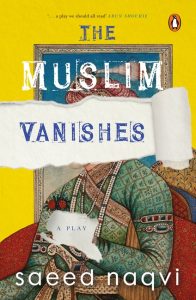
The Muslim Vanishes
Saeed Naqvi
If we take Ghalib and his myriads of followers out of the equation, will Hindustan be left with a gaping hole or become something quite new? The Muslim Vanishes, a play by Saeed Naqvi, attempts to answer that question.
A Muslim-free India, as a character speculates naively in the play, would be good for socialism, since what the 200 million Muslims leave behind would be equitably shared by the general population. Meanwhile, another character, a political leader, is traumatized by the sudden disappearance of the Muslim voter base and the prospect of a direct electoral confrontation with the numerically stronger Dalits and other backward classes.
In this razor-sharp, gentle and funny play, Saeed Naqvi draws on a mix of influences to spring an inspired surprise on us, taking us on a journey into the realms of both history and fantasy.
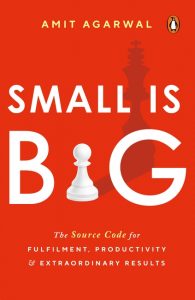
Small Is Big
Amit Agarwal
An organization becomes an iconic brand by retaining only 3 per cent of its products.
A CEO gets more done by organizing ten-minute focused meetings.
A tired person transforms his life by embracing one micro habit of waking up at 5 a.m.
These choices say YES to a small set of things that matter and say NO to everything else. Using extensive research, life experiences, and hands-on exercises, this book reveals the Small Is Big source code and outlines how to apply it.
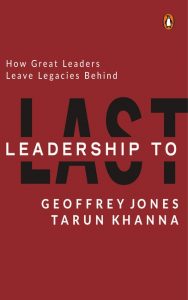
Leadership To Last
Geoffrey Jones, Tarun Khanna
In Leadership to Last, Geoffrey Jones and Tarun Khanna interview iconic leaders in India who have demonstrated leadership to last. There are leaders from South Asia and other emerging markets as well to illustrate that the ideas Indian entrepreneurs speak about are echoed by their counterparts in the Global South. The authors corroborate how these stories are less about building a get-rich-quick organization and much more about triggering a foundational and institutional change in society. Ratan Tata, Anu Aga, Adi Godrej, Kiran Mazumdar-Shaw, Devi Shetty and Rahul Bajaj, to name a few, inspire awe by displaying audacity of intent, the humility of demeanour and steadfastness of purpose.
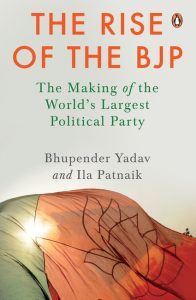
The Rise of the BJP
Bhupender Yadav, Ila Patnaik
The Bharatiya Janata Party is an idea that was seeded into the minds of nationalist Jana Sangh leaders when they began to envision India after Independence. In this book, senior BJP leader and cabinet minister Bhupender Yadav and leading economist Ila Patnaik come together to trace the BJP’s journey from its humble roots, through ups and downs and to eventually getting 303 seats in Lok Sabha in 2019 and becoming the world’s largest political party. The Rise of the BJP tells us the inside story of how one of the most powerful political parties makes decisions, implements ideas and executes policy.








